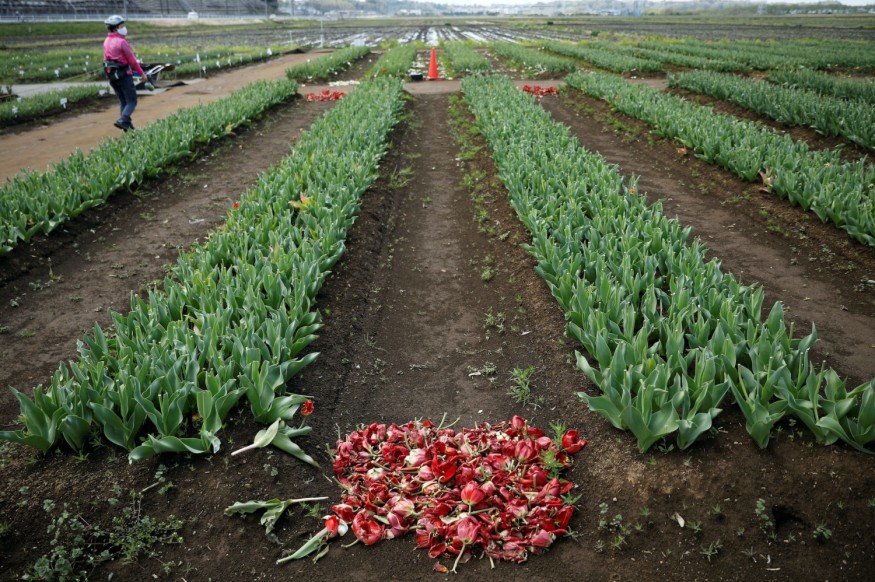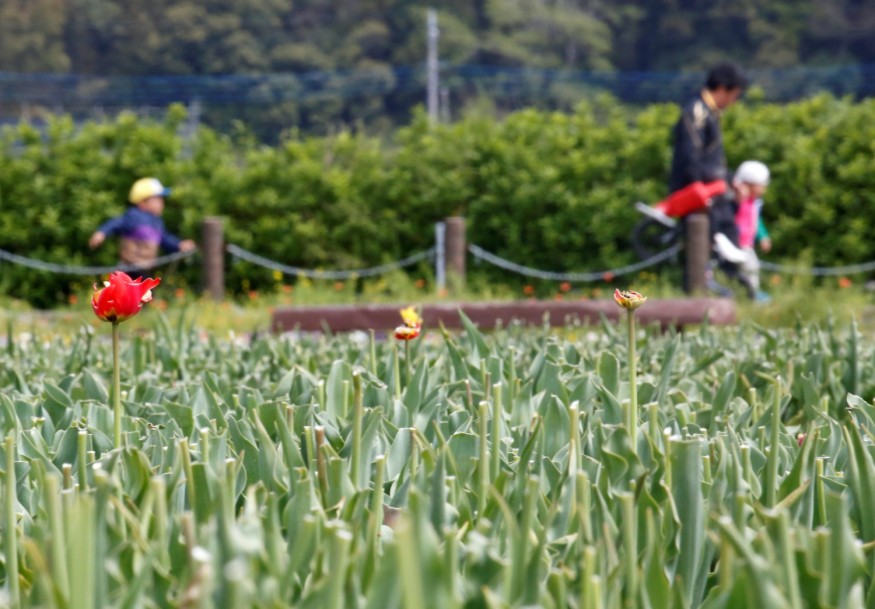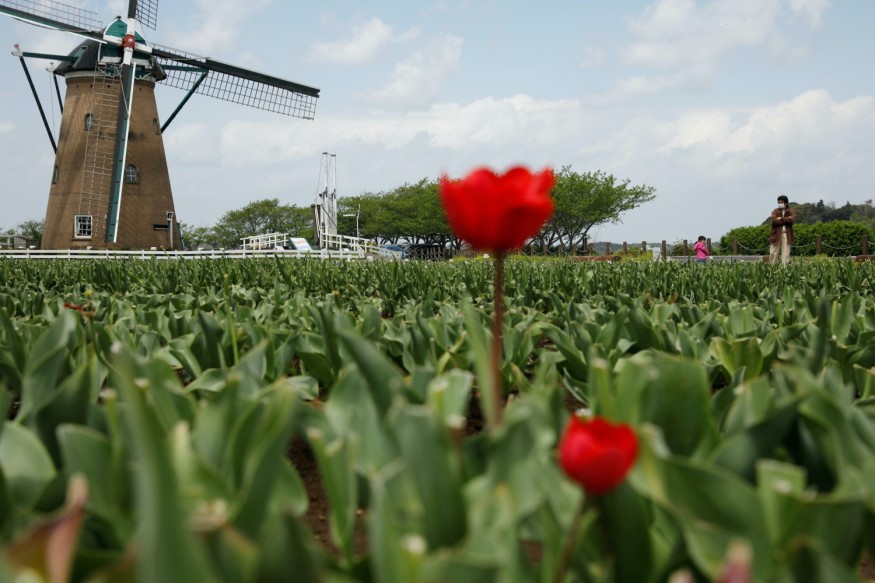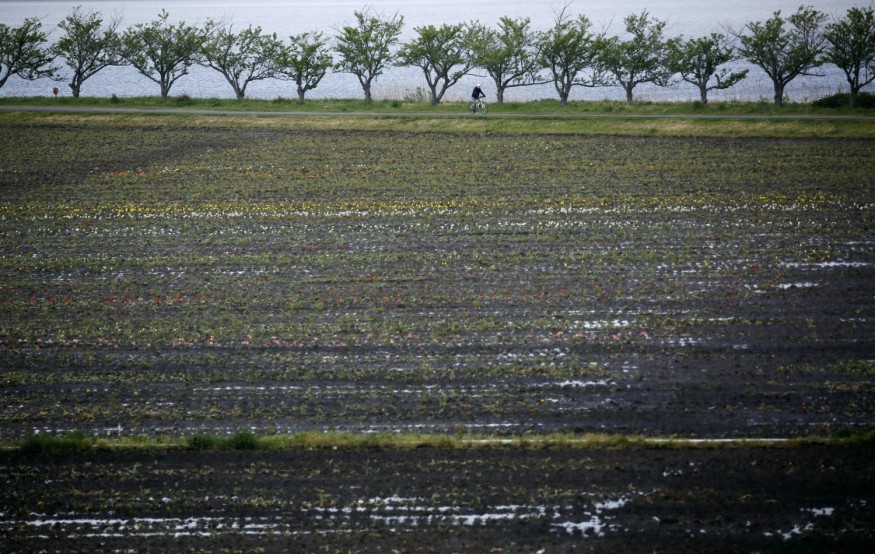




It's springtime in Japan, a season of flowers. The country celebrates spring with cherry blossom viewing and trips to flower gardens to appreciate the beauty of the season. Unfortunately, this year is different due to the impending coronavirus.
Officials of the city of Sakura, about 50 kilometers east of Tokyo, have mowed more than 100,000 tulip stems in compliance with social-distancing rules to control the coronavirus. They have also canceled the park's annual tulip festival to discourage people from flocking and instead stay at home after a coronavirus emergency was declared last week.
Sakiho Kusano, a city tourism official, reported that numerous visitors showed up on the weekend when the flowers were in full bloom. Kusano added that they had no choice but to make the difficult decision of cutting the flowers to stop the mass gatherings.
A 77-year-old visitor, Misako Yonekubo, said on Wednesday, that it was regrettable and that his mood sank after seeing the barren fields and the tulip stems. The cut flowers were donated to kindergartens.
Springtime Wilted by Coronavirus
In an average time without the pandemic, the people of Japan, along with millions of tourists, should now be enjoying the season by holding 'hanami' or cherry blossom viewing trips. Traditionally, friends and family get together and hold picnics under the 'sakura' or cherry blossom trees.
It's a tremendously important time of year for the country, both economically and culturally. However, this year, the coronavirus pandemic caused events to be canceled, and the ban on foreign travel is keeping visitors away.
Katsuhiro Miyamoto from Kansai University pointed out the economic importance of hanami and estimated that almost 8.5 million tourists visited the country during the spring, bringing in some 650 billion yen.
Seijiro Takeshita from the University of Shizuoka emphasized that the gatherings are so crucial to the Japanese economy. It is a time when they gather, feast, and make merry.
Last week, Tokyo's governor, Yuriko Koike, urged people not to hold their traditional parties. She also referred to the cultural significance of hanami as she said that it was like "taking hugs away from Italians."
Japan's Coronavirus Emergency
On April 8, a nationwide state of emergency has been declared in Japan due to the country's worsening coronavirus outbreak. The state of emergency will remain in force until May 6.
The state of emergency includes seven prefectures, with about 56.1 million people. It was not until April 16 that the prime minister expanded it to the entire nation while pledging to launch a 100,000 yen, approximately $930, cash handout order for all residents.
Japan is now showing efforts in fighting the coronavirus; however, the emergency move has limits of its own. The declaration will depend primarily on voluntary compliance.
Prime minister Abe emphasized that it was not a lockdown and that public transit would continue. Prefectural governors can only request the public to work from home and avoid going out.
As the number of infections in Japan has increased, criticism of Abe's response to the dilemma has grown louder. A poll shows that 75% of people think the prime minister took too long to declare a state of emergency in Tokyo.
© 2026 ScienceTimes.com All rights reserved. Do not reproduce without permission. The window to the world of Science Times.










